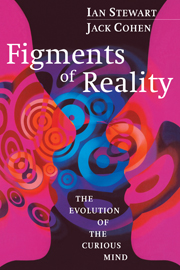Book contents
- Frontmatter
- Contents
- Preface
- Figure Acknowledgements
- Prologue
- 1 The Origins of Life
- 2 The Reductionist Nightmare
- 3 Ant Country
- 4 Winning Ways
- 5 Universals and Parochials
- 6 Neural Nests
- 7 Features Great and Small
- 8 What is it Like to be a Human?
- 9 We Wanted to Have a Chapter on Free Will, but We Decided not to, so Here It Is
- 10 Extelligence
- 11 Simplex, Complex, Multiplex
- Epilogue
- Notes
- Further Reading
- Index
6 - Neural Nests
Published online by Cambridge University Press: 11 August 2009
- Frontmatter
- Contents
- Preface
- Figure Acknowledgements
- Prologue
- 1 The Origins of Life
- 2 The Reductionist Nightmare
- 3 Ant Country
- 4 Winning Ways
- 5 Universals and Parochials
- 6 Neural Nests
- 7 Features Great and Small
- 8 What is it Like to be a Human?
- 9 We Wanted to Have a Chapter on Free Will, but We Decided not to, so Here It Is
- 10 Extelligence
- 11 Simplex, Complex, Multiplex
- Epilogue
- Notes
- Further Reading
- Index
Summary
One episode of the TV series Trials of Life involved filming the remarkable behaviour of the tarantula wasp. Mother wasp finds a tarantula, stings it to paralyse it, and drags it back to her hole. Then she lays her eggs in it, so that the newborn larvae have their own reliable food supply. Or so all the textbooks say. The first attempt to film this sequence of events went beautifully - except that, right at the end, the wasp forgot to lay her eggs. The next attempt was going really well until a bird fiew by and ate the wasp. On the third attempt the wasp never managed to find the tarantula … and so it went, for a dozen or more attempts. None of the wasps filmed managed to complete the entire sequence in textbook fashion.
Despite this, the final film looked great: it edited several different wasps together to get exactly the textbook story.
However, one could be forgiven for concluding that real wasps don't read textbooks.
In the previous chapter we made an important distinction between universal and parochial features in evolution, and argued in passing that intelligence is a universal evolutionary strategy, likely to be found wherever life has taken sufficient hold. In this chapter we refine that theme by examining the evolution of intelligence on our own Earth.
- Type
- Chapter
- Information
- Figments of RealityThe Evolution of the Curious Mind, pp. 135 - 164Publisher: Cambridge University PressPrint publication year: 1997

